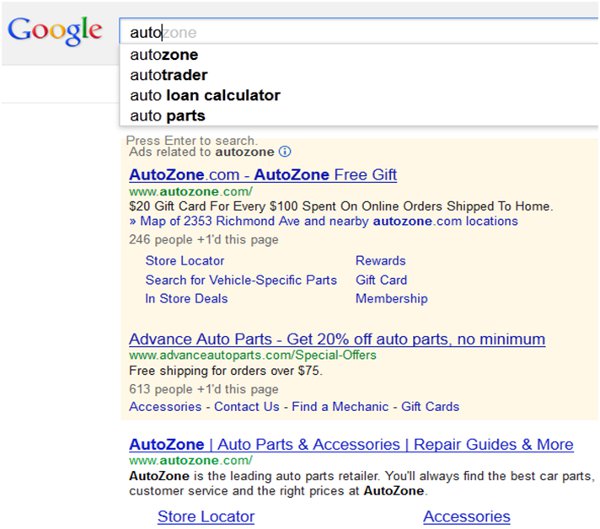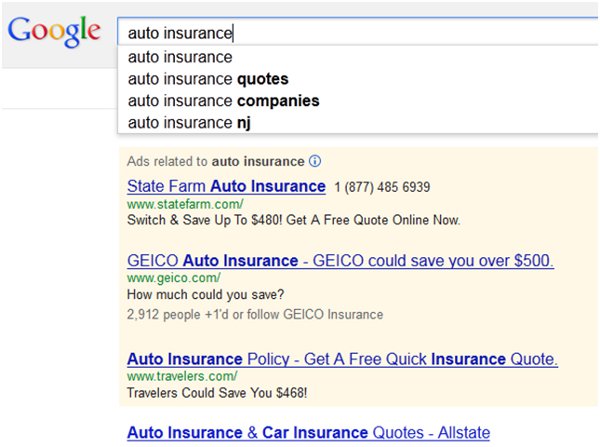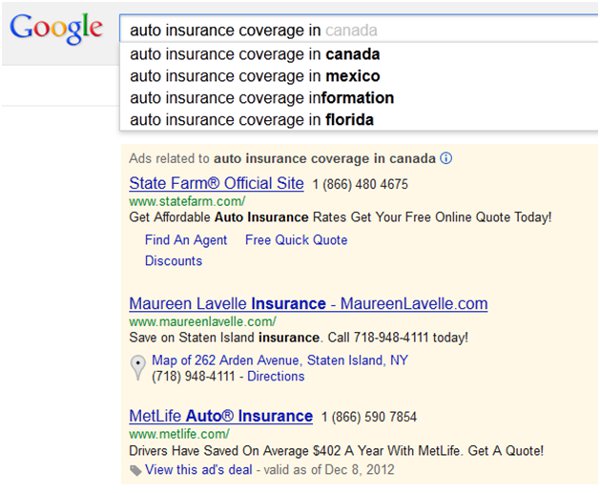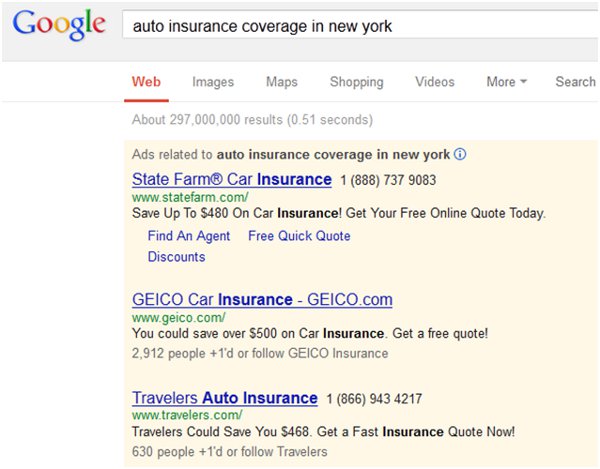As I was writing my previous article for SEJ, I conducted several experiments during which I stumbled across few troubling issues with Google’s methods. One such behavior is a serious issue in terms of customer awareness, which may be considered border-line fraudulent. Make no mistake, my intention is not to become the Ralph Nader for Google customers, but something at this scale is worth my time and yours too.
 Dollars, time, and cents
Dollars, time, and centsBefore getting into the issue, let me remind you of some basic definitions:
Instant Result-Streaming:
Instant Result-Streaming is what Google does when you start typing a query (longer than a single word), and before you finish it, search results are streamed to the front page. This all happens very quickly before you click on the search button, or sometimes you don’t even have to click on the button. Google calls it “Google Instant”.
CTR:
CTR (Click Through Ratio) is a measurement that indicates how many times your advertisement was shown versus how many times it was clicked by the user. For example, if your advertisement was shown (impression) 100 times, and it was clicked by the end user twice, the CTR for that ad would be 2%.
The Problem:
The problem is that Instant Result-Streaming (Google Instant) is eating up impressions before the users get ample time to view the page, and automatically decreasing CTR because no one will click on those ads present. In other words, you (advertiser in Google) are paying extra for a feature Google uses to increase its appeal. You’ll find below an example how this occurs:
My query is “auto insurance coverage in New York”. With this question in mind, I start typing. But, as soon as I finish the first word “auto” and before I start typing the second word “insurance” results are streamed with ads. Here is the screen capture:
 Consider: This preleminary streaming result rapidly transposes as you type
Consider: This preleminary streaming result rapidly transposes as you typeNow, keep in mind you are comfortably viewing this screen capture with ample time because this is a blog page, not a search page. However, in real Google Instant time, as I continue typing with the complete query in my mind, I will not pay attention to this page any longer. It flashes within a fraction of a second before I start typing the 2nd word. Therefore, the impressions by AutoZone and Advanced Auto Parts are totally wasted. Here is my second word screen capture:
 Again, while still typing my real query more impressions go by.
Again, while still typing my real query more impressions go by.Again, I will not pay attention to this page either because I am still typing. Impressions by State Farm, Geico, and Travelers are wasted. Now the 4th word:
 More lost opportunities
More lost opportunitiesState Farm gets another hit along with Maureen Lavelle and MetLife. I am still typing:
 The survivors show up with only wasted impressions in their wake
The survivors show up with only wasted impressions in their wakeNow I am finished. I am looking at the page, and I have ample time to decide what to do like any other Google user. The top ads State Farm, Geico, and Travelers survived. However, they survived at the expense of few wasted impressions along the way. In addition, the other advertisers like MetLife, or Maureen Lavelle are no longer on the screen. Their impressions were totally wasted.
Google does not give infinite impressions. The number of impressions are directly proportional to bidding, thus the advertiser is paying for it.
Before declaring it as DECEPTION, I have the following questions for Google (if they honor SEJ readers by answering).
- Do the impressions in Google ads have a timer such that an exposure less than, say 5 seconds, would not count as an impression?
- If the answer is “no” to the above, then comes the next question: Are Google’s customers presented with an explanation that some of the impressions could be part of Google Instant operation, with extremely low probability to be clicked? I did not find such information on Google’s ad system myself, but it is possible it exists in some form.
If one of the answers above is YES, then the Google Ad system is still not off the hook. This is because of the CTR problem, which will be lower with Google Instant than without it. But we can no longer call this problem a deception. However, it stands to reason that if both of the answers above is NO, then this is a deception.
I checked the Internet to see if this problem had ever been addressed, and yes, in fact it has. One blog (http://www.realwebmarket.com/blog/tag/ctr-decrease/) explains this issue focused on its effect on the CTR. The fact that the issue was already published on blogs provoked me further. It told me that the answers to both questions above are most likely “NO”. I was sad to see how people are taking an “accepting” position and trying to offer some Micky-Mouse solutions.
It is not my personal interest to find flaws in Google, I just stumbled upon it, and was astonished with the degree of disrespect Google has developed over the years for their core clientele, who are the bread and butter of Google. With this mentality in place, I would not be surprised to see some class-action suit against Google down the road. I strongly recommend that Google takes this issue seriously and finds a remedy showing their fairness. Here is the simplest solution:
PUT A TIMER ON THE SEARCH RESULT PAGE. IF EXPOSURE IS LOWER THAN, SAY 5 SECONDS, DO NOT COUNT THIS AS AN IMPRESSION.
Photo credit: Google time versus money mashup – courtesy © fontriel and © Michael Flippo Fotolia.
Note: The opinions expressed in this article are the views of the author, and not necessarily the views of Search Engine Journal, its staff, or its partners.




